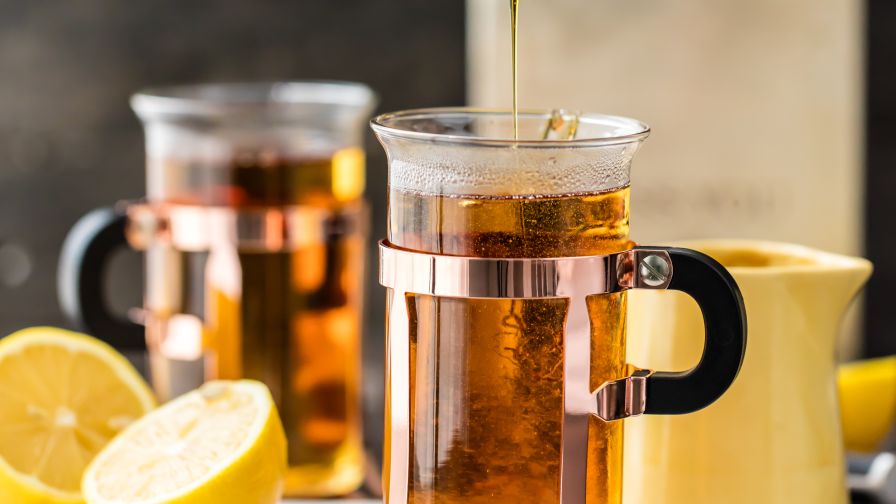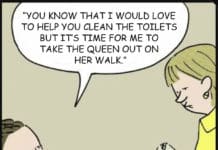We will soon be heading into the season of coughs, colds and flu once again, together with the misery that such conditions bring. In most cases, these illnesses are relatively short-lived, but can be unpleasant, inconvenient and annoying, and also serious in cases where there are underlying health conditions.
Coughs are mostly caused by a cold or flu virus, or bronchitis, and will usually last for around three weeks. Antibiotics make very little difference to symptoms and can have unpleasant side-effects. More importantly, unnecessary prescriptions reduce their effectiveness.
As a child, whenever I had a cough or cold, the first thing that my mother would do was to give me a regular concoction of blackcurrant juice and honey to drink. It was a very comforting drink and certainly helped to reduce symptoms.
In adult life, I continue to follow this advice, although with the addition of a large tot of whisky for good measure. It is the honey that is the magic ingredient, and UK doctors are now asking their patients to eat honey before visiting their local surgery if they have a cough or cold. It is all part of a growing effort to tackle the problem of resistance to antibiotics. Of course, to benefit from honey we must also have bees.
In recent years, there has been considerable hybridisation of bee species with the importation of bees to the Canary Islands that were supposed to be more productive. The native Canary Black Bee is now officially declared to be a breed in danger of extinction. It was only on the small Canary Island of La Palma that pure populations were discovered, and in 2001 a law to conserve the Canary Black Bee population was introduced, and the introduction of foreign subspecies was banned.
There are now at least 500 colonies of the Canary Black Bee on the island, which are resistant to many diseases that many bees succumb to. This native bee has very specific characteristics that make it highly productive, gentle and is unlikely to attack others. In Gran Canaria, the Government recently announced that they too were not only going to give special protection to the Canary Black Bee, but to ensure its distinctive survival by selecting a group of island beekeepers who will help to ensure that its genetic purity lives on.
Bees are very important for our very survival; the simple headline fact is that if bees didn’t exist, neither would humans. Bees are responsible for much of the food that we eat, since they keep plants and crops alive. One surprising fact is that around one third of the food that we eat is pollinated by bees. Bees do not pollinate our crops out of a sense of duty to the human race; they simply eat to survive.
They absorb the protein that they need from pollen and all of the carbohydrates that they need from nectar. Bees feed from flowers, and as they move from flower to flower they just happen to provide an essential service to humans.
Pesticides appear be the main cause of the problem, although some experts also attribute some of the collapse of the bee population to climate change, the loss of their usual habitat and attacks from a variety of parasites.
Popular pesticides known as neonicotinoids, which is similar to nicotine, cause bees to go insane and to abandon their hives; they don’t know how to return home and some experts claim that they develop a form of Alzheimer’s. Maybe this disturbing link with nicotine-based products that attack bees should give a serious warning to human smokers too.
Climate change also can take its fair share of blame with the disruption of the natural synchronisation of bee hibernation and flower opening, which causes bees to die. Despite this gloomy scenario, some positive steps are being made to help to rebuild and sustain bee populations.
Measures to address the problem are being taken in a number of countries. Strategies include funding to help farmers to establish new habitats for bee populations, alternatives to nicotine-based pesticides, as well as support from bee keepers, such as those in La Palma and Gran Canaria who are determined to maintain the viability of the species.
In order to prepare for the forthcoming season of coughs and colds, do take my mother’s advice and remember to include a jar of Canarian honey in your shopping basket. It is not only delicious, but it really does help.
If you enjoyed this article, take a look at my websites: http://barriemahoney.com and http://thecanaryislander.com or read my latest book, ‘Living in Spain and the Canary Islands’ (ISBN: 9780995602724). Available in paperback, as well as Kindle editions.
Join me on Facebook: @barrie.mahoney
© Barrie Mahoney





